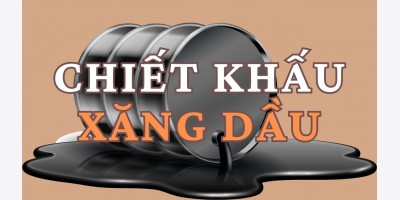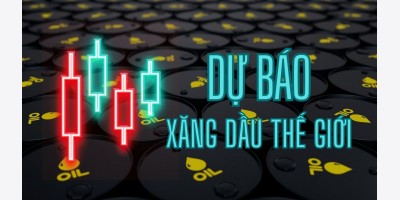Trong Lá»… ká»· niệm Ä‘ánh dấu 50 năm ngày thành láºp tổ chức các nÆ°á»›c xuất khẩu dầu má» (OPEC) diá»…n ra ngày hôm qua, Iran, nÆ°á»›c chủ tá»a Ä‘ã Ä‘Æ°a ra dá»± báo vá» giá dầu thô toàn cầu sẽ còn tăng vào cuối năm 2011. Äồng thá»i Tổng thÆ° ký OPEC cÅ©ng thúc giục các nÆ°á»›c công nghiệp phát triển trong nhóm G8 nên cắt thuế nháºp khẩu nhiên liệu.
Mohammad Ali Khatibi, đại diện của nÆ°á»›c chủ nhà Ä‘ã dẫn chứng cho nháºn định này thông qua hai yếu tố. Thứ nhất, các yếu tố cÆ¡ bản, bao gồm yếu tố cung-cầu và kế đến là các yếu tố chính trị, yếu tố tâm lý và cả những yếu tố không lÆ°á»ng trÆ°á»›c được.
Vào hôm thứ Hai đầu tuần, Tổng thÆ° ký OPEC- Abdullah El-Badri cÅ©ng nhấn mạnh mối quan ngại vá» giá cao trong bối cảnh nguồn cung ổn định trên thị trÆ°á»ng. Phát biểu vá»›i cánh báo giá»›i tại Kuwait, ông El-Badri nói sẽ là rủi ro đối vá»›i thị trÆ°á»ng nếu giá tăng thêm 15-20 USD/thùng tại thá»i Ä‘iểm này.
Còn trong buổi lá»… ká»· niệm ngày hôm qua tại Teheran, ông Mr El-Badri khẳng định thị trÆ°á»ng không há» thiếu dầu, tháºm chí lượng dầu tồn kho còn khá cao.
“OPEC Ä‘ã hoàn thành sứ mệnh trong việc đảm bảo nguồn cung dầu thô cho thị trÆ°á»ng. Äồng thá»i OPEC cÅ©ng hoan nghênh các nÆ°á»›c tiêu thụ nhiên tạm thá»i nên cân nhắc sá»a đổi lại việc áp thuế ở mức cao nhÆ° hiện nay để tháo gỡ khó khăn cho thị trÆ°á»ng, bởi chúng ta Ä‘ang trong hoàn cảnh đặc biệt và Ä‘iá»u Ä‘ó Ä‘á»i há»i cần có má»™t giải pháp đặc biệt”.
Ông El-Badri cÅ©ng nói thêm: “Chúng tôi yêu cầu chính phủ các nÆ°á»›c G8, mà hiện Ä‘anh Ä‘ánh thuế rất mạnh đối vá»›i dầu nhiá»u hÆ¡n là các nÆ°á»›c sản xuất cần giảm thuế”.
Tôi nghÄ© thị trÆ°á»ng hiện tạm ổn, trong Ä‘ó có sá»± Ä‘óng góp 4.5 triệu thùng/ngày từ OPEC. Mặc dù không thiếu nguồn cung, hay tồn dá»± trữ vẫn ở mức cao Ä‘i chăng nữa thì giá dầu vẫn trên mức 100 USD/thùng cho đến hết năm nay.
Giá dầu trong phiên giao dịch châu Á hôm qua Ä‘ã giảm xuống sau khi hãng định mức tín nhiệm tín dụng Standard and Poor Ä‘e dá»a sẽ hạ báºc xếp hạng tín nhiệm cao nhất của Mỹ nếu chính phủ và quốc há»™i không giảm được khoản thâm hụt ngân sách khổng lồ của mình trong vòng hai năm tá»›i. NhÆ°ng sau Ä‘ó giá dầu vẫn tăng mạnh trong phiên Mỹ kế Ä‘ó do tình hình căng thẳng chính trị ở thế giá»›i Ả ráºp tiếp.
Vào lúc 4h36 chiá»u nay (giá» Việt Nam), giá dầu thô giao kỳ hạn tháng 05 đứng ở mức 111,93 USD/thùng.
Secretary General of OPEC, Abdalla Salem El-Badri from Libya speaks during a ceremony to mark the 50th anniversary of the stablishment of Opec in Teheran, yesterday.
Iran, which chairs the oil producers’ cartel Opec, said yesterday it expects global crude prices to further rise by the end of 2011. Photo: Behrouz Mehri /AFP
Iran, which chairs the oil producers’ cartel Opec, said yesterday it expects global crude prices to further rise by the end of 2011 while the secretary-general urged wealthy G8 countries to cut fuel taxes.
“The price of oil depends on two things. First, the fundamentals, including supply and demand and then the political, psychological and unforseen elements. Based on these factors, oil prices should increase again by end of the year,” Iran’s representative to Opec, Mohammad Ali Khatibi, told reporters in Teheran.
He said oil demand in 2001 will be high, between 1.3 million barrels per day to 1.6 mbpd.
“What is certain is that we will see a rise in demand,” he said.
On Monday, the secretary general of Opec, Abdullah El-Badri had expressed concern over the high price of oil but added the market had adequate supplies of the commodity.
“We see that there is a $15-$20 dollar premium risk at this time,” Mr El-Badri told reporters in Kuwait.
Yesterday, he was in Teheran for the 50th anniversary of the founding of Opec, and reiterated that the market was adequately supplied with crude oil.
He said there was “no shortage” of oil in the market. “Opec has said repeatedly there is no shortage of oil anywhere in the world and stocks are high,” Mr El-Badri told reporters.
“Opec has done its part to ensure that the market is adequately supplied with crude and it will be useful in this challenging time if consuming countries, who impose high taxes on oil, revise it temporarily because we are in an exceptional circumstance that needs exceptional solution.”
“We ask the governments of the G8, which have more taxes and are making more money from taxes than the producing nations from selling ... we urge them to reduce the taxes,” Mr El-Badri said.
“I think the market is comfortable and we (Opec) already have 4.5 million barrels per day that we can send to market (there is) no shortage in market and stocks are high,” he added. Mr El-Badri said that crude prices will remain above $100 per barrel for the rest of the year when asked if prices would fall below that level.
Oil fell in Asian trade yesterday after a bearish Standard and Poor’s report on the United States, but geopolitical risks in the Arab world will continue to drive prices higher, analysts said.
New York’s main contract, light sweet crude for delivery in May dipped 27 cents to $106.85 a barrel, while Brent North Sea crude for June eased 35 cents to $121.26 in the afternoon.








